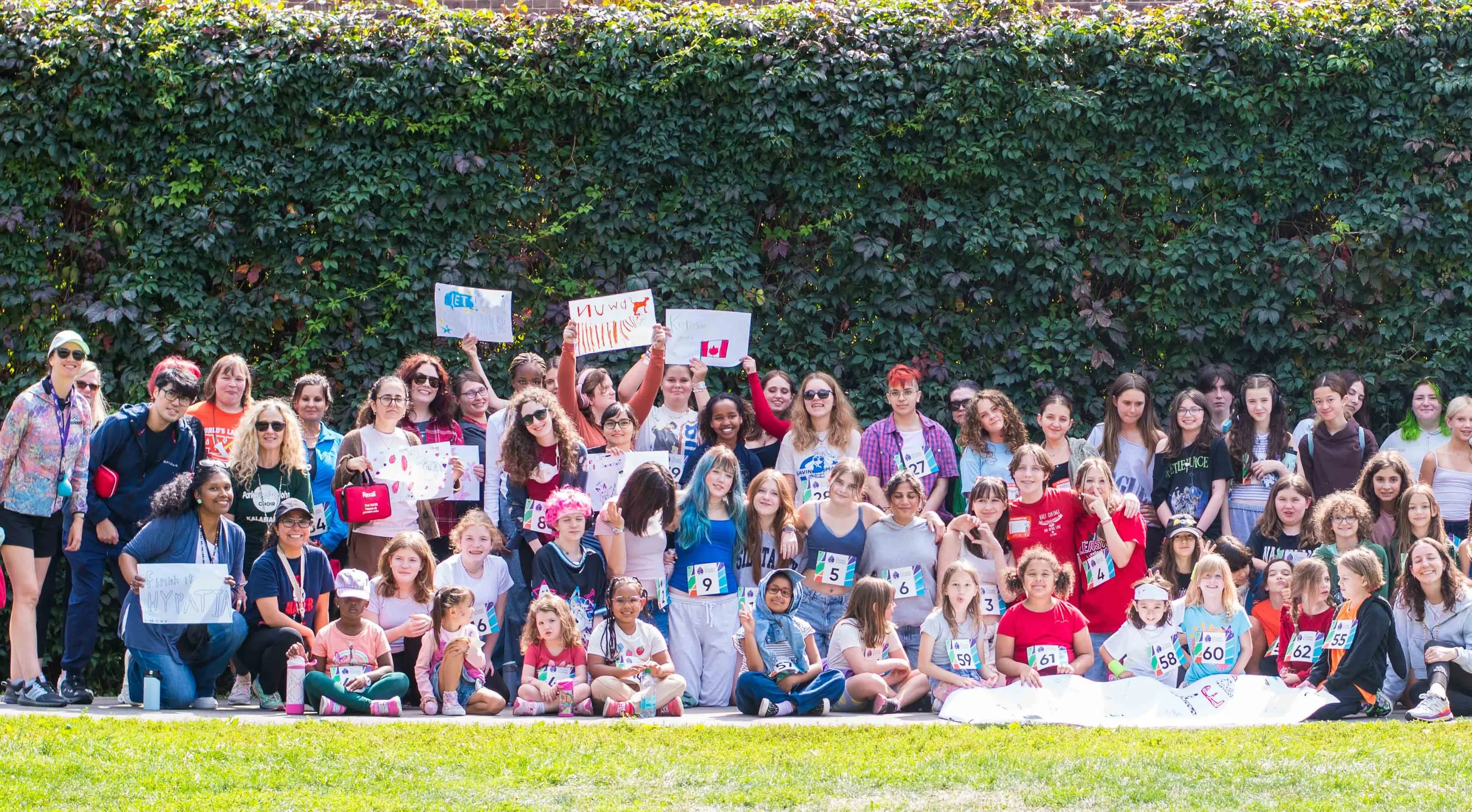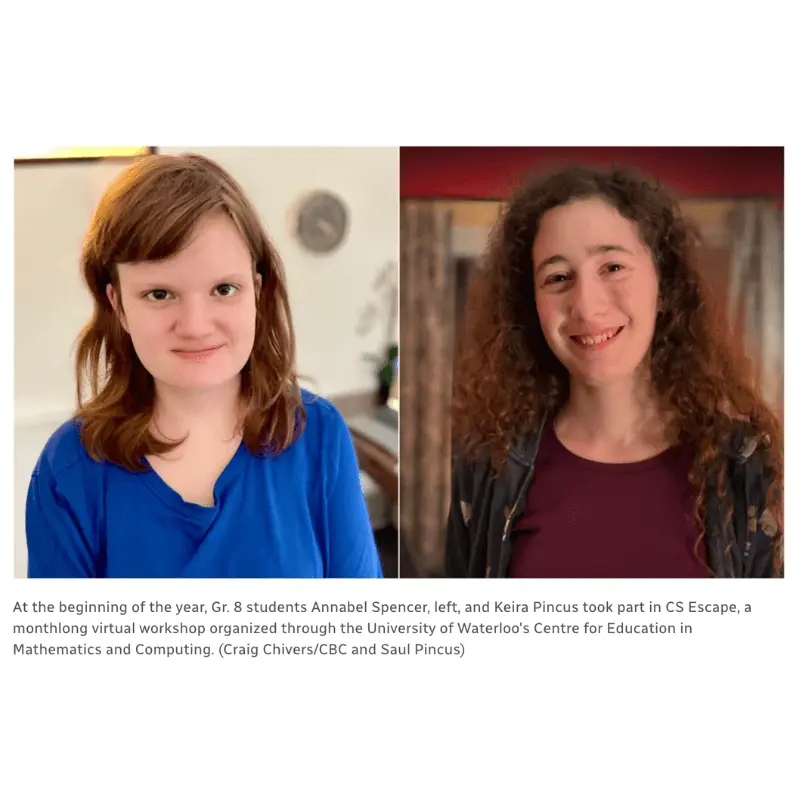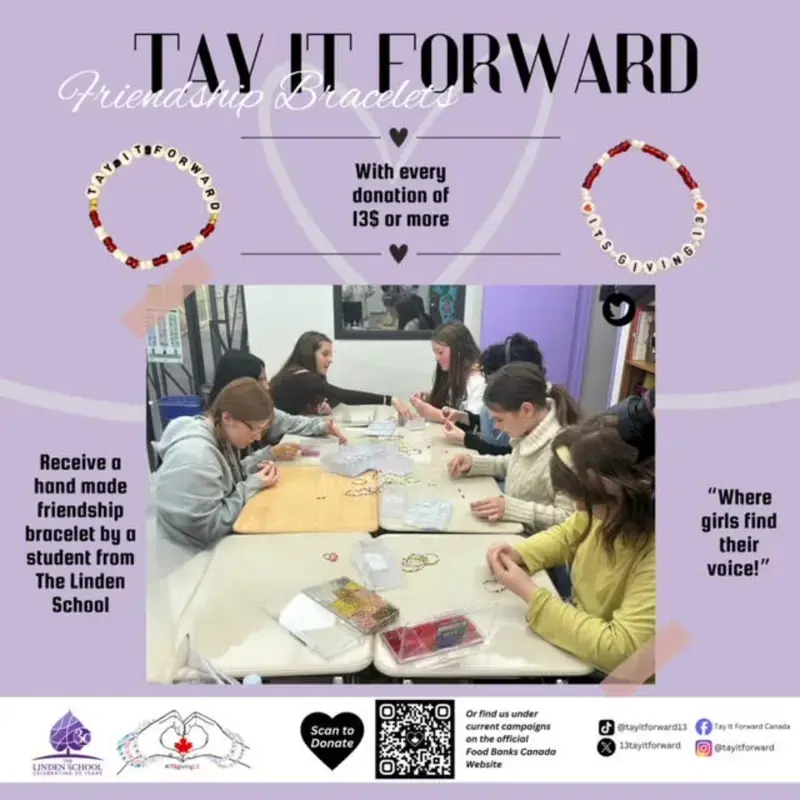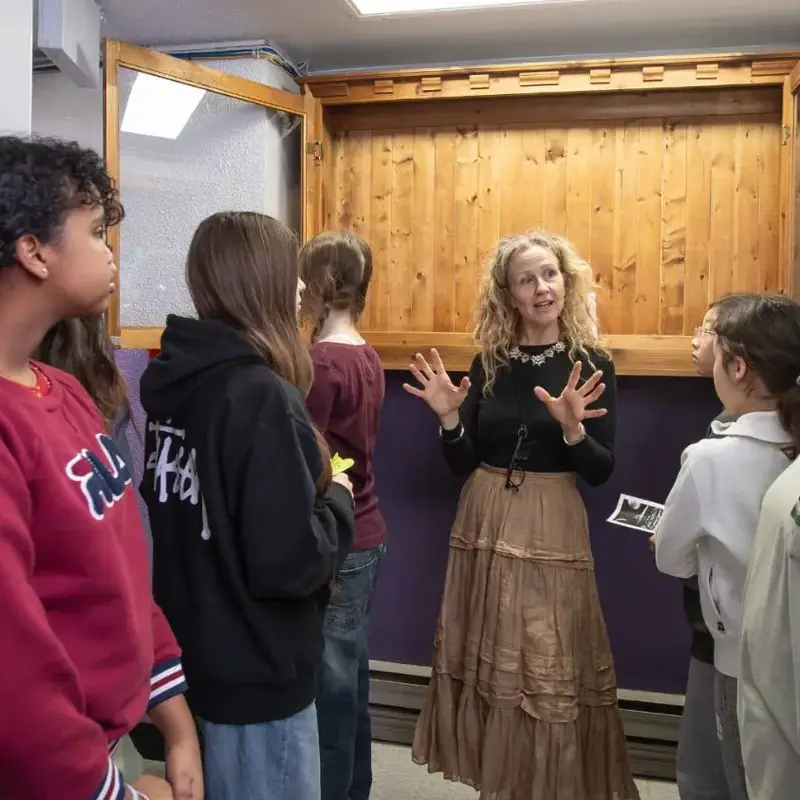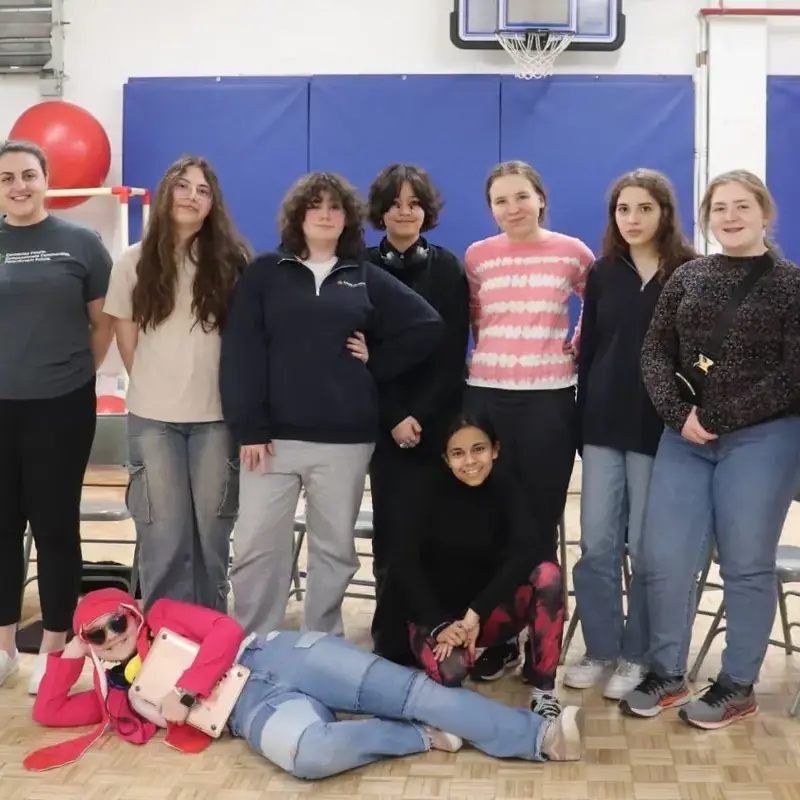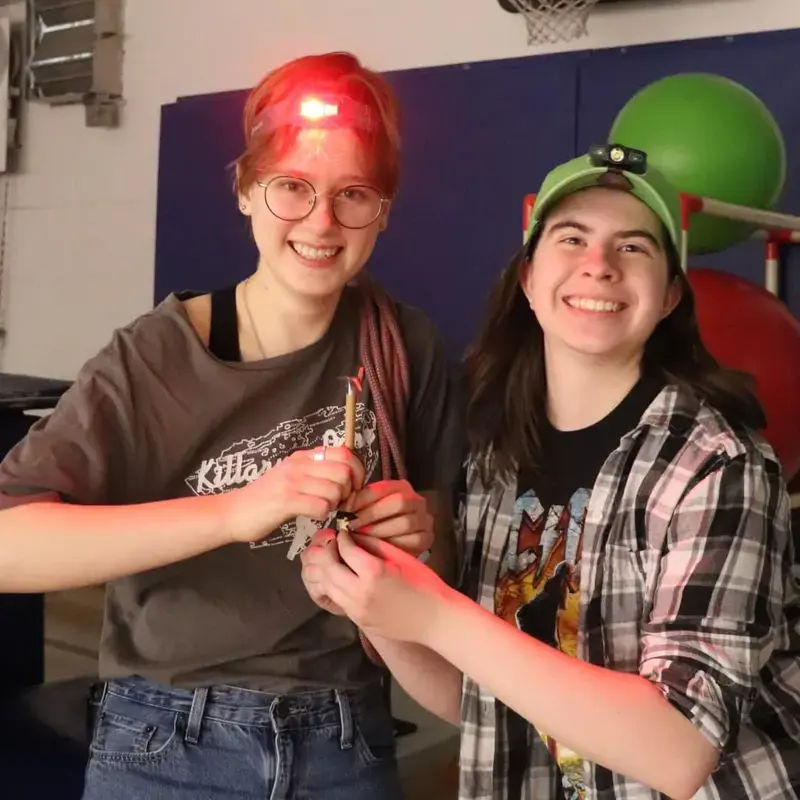-
Wed, 05 Mar 2025
Linden Students Win Silver in Coding at CS Escape by University of Waterloo's Centre for Education in Mathematics and Computing
Linden Grade 8 students Annabel Spencer and Keira Pincus earned a silver medal in the CS Escape, a month-long virtual workshop organized by the University of Waterloo's Centre for Education in Mathematics and Computing.
-
Fri, 29 Nov 2024
Tay It Forward
Help families facing food insecurity and receive a dazzling friendship bracelet made with care by a Linden student.
-
Mon, 25 Mar 2024
Grade 8 Students Merge Environmental Consciousness with Creative Writing
The Grade 8 English class took on a culminating task for their Novel Study unit by crafting original short stories, inspired by the themes resonating in the dystopian novel, "The Marrow Thieves," penned by Indigenous author Cherie Dimaline.
-
Mon, 25 Mar 2024
Youth Philanthropy Initiative Participation Inspires Skill-Building, Academic Excellence, and Civic Engagement
During our recent Youth Philanthropy Initiative (YPI), led by Eliza, Linden’s senior English teacher, Grade 9 students displayed exceptional courage, eloquence, and passion as they stood before Linden community members and YPI representatives to present their projects.
-
Mon, 25 Mar 2024
Celebrating International Women's Day at Linden: Inspiring Inclusion
Linden was one of the first girls' schools in the world to be founded on feminist principles, and on International Women's Day (IWD), we honour our roots.
-
Mon, 25 Mar 2024
Grade 12s Lead Spirit Week, Filled With Exploration-Themed Fun
In a longstanding tradition, Term 2 concludes with Spirit Week, in which Linden’s Grade 12 students lead community-building activities for students and staff alike.
-
Tue, 29 Oct 2019
What Makes a Great Teacher Great?
What should parents be looking for in educators? We asked one of the best.
-
Tue, 05 Jun 2018
Linden Teacher Beth Alexander Featured by Ontario College of Teachers!
We are delighted that the Ontario College of Teachers has featured Linden teacher Beth Alexander in their June 2018 publication, Professionally Speaking.
Filter By:
